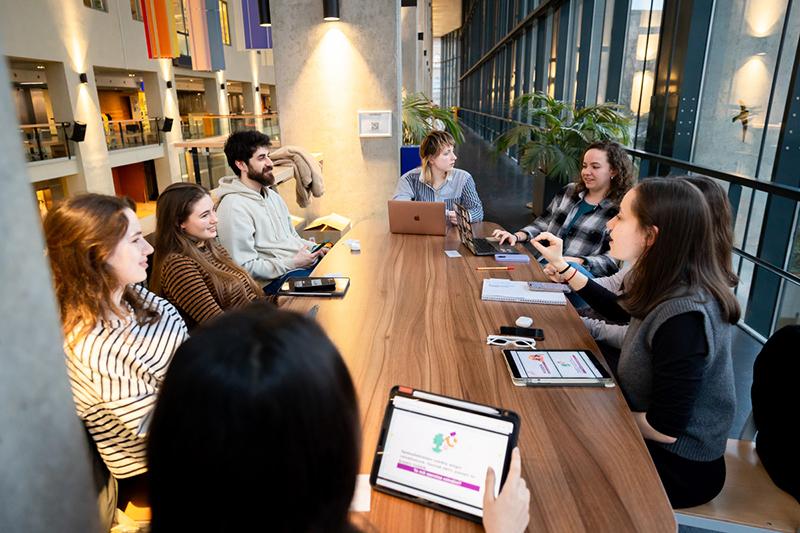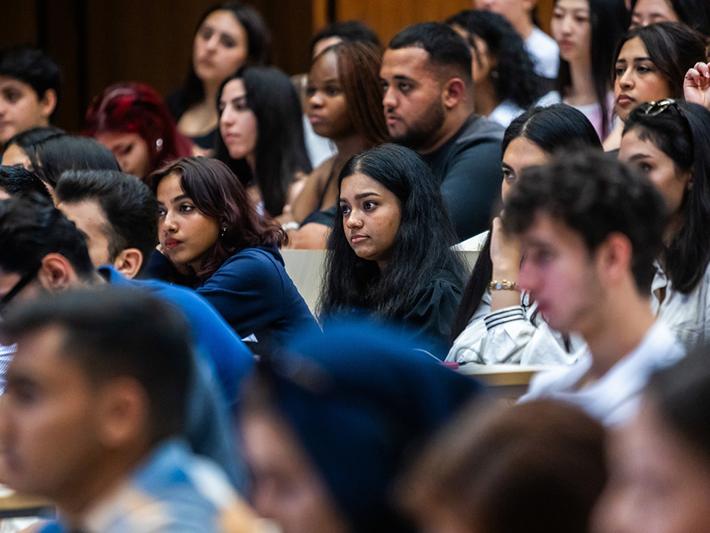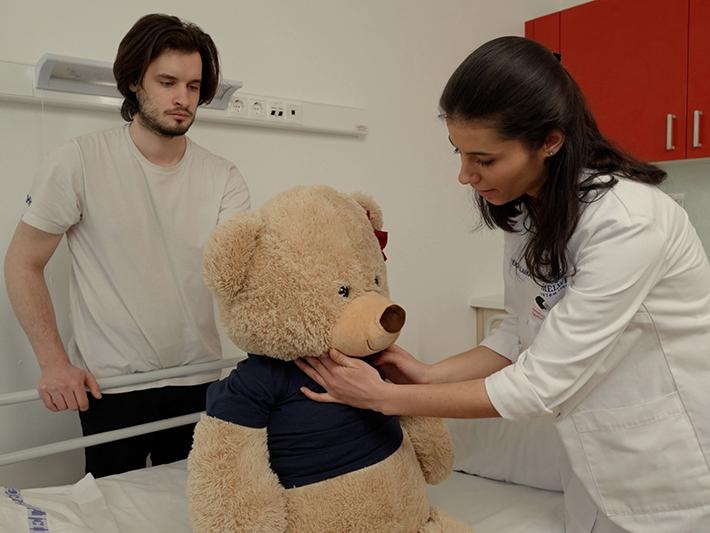When students across healthcare faculties get together to work on their English, German or Hungarian, their discussions are not filled with medical terminology. Rather they practise how to order food, shop or find their way around Budapest through authentic real-world scenarios and activities. These conversations about cultural traditions or comparing experiences of daily life help students gain confidence and see progress after only a few sessions.
However, it is not only the everyday nature of the discussion topics that makes the Language Club at Semmelweis University so valuable. The diversity of the groups, which draw together students across six faculties of Medicine, Dentistry, Pharmaceutical Sciences, Health Sciences, Health and Public Administration as well as the András Pető Faculty, means that sessions help students become more open, empathetic and aware of different cultures as well as supporting language development. All are essential skills for future healthcare professionals.
The Language Club has grown from a student-led initiative into an elective course within the Institute of Languages for Specific Purposes, which supports university students to develop their four language skills with a deeper focus on speaking and listening. Practical, interactive sessions, for levels from elementary to advanced, are run in small, informal groups, with the help of tutors who are students themselves.
- Resource collection: English as a second language in higher education
- Campus podcast: cross-cultural communication in the international classroom
- Mind your language: inclusive teaching for international students
More than a third of the university’s 16,000 students are enrolled in English- and German-language programmes, with international students from 129 countries and five continents. The institution organises joint activities and events to create one community for the students involved in all three programmes. However, if we can offer an extra space for them to meet, interact and learn from one another, it only supports the university’s efforts. This is how the Language Club was created.
Promoting the integration of international students in a playful way
The club has evolved as initial enthusiasm and volunteer efforts grew, with the sessions becoming more structured and focused on active participation, with professional guidance. Anyone from B1 to C1 level can take part; the threshold ensures that communication can take place and that participants can use the language in playful, practical ways.
The club relies on student-tutors whose first language is Hungarian, English or German. Non-native speakers need to meet the minimum level of C1 on the Common European Framework of Reference for Languages (CEFR). As the students running the sessions have no teaching qualification, they cannot accommodate complete beginners.
To make the sessions effective, tutors create groups of students with similar skill levels. This process is supported by the institute. While instructors can recommend textbooks, these serve only as support. The club has never been textbook-based, and that is intentional. Tutors bring real-life topics to the sessions, which are flexible and relevant.
A feedback system ensures quality and improvement. Students are assessed informally through end-of-semester reports written by the tutors. Students also submit end-of-semester online feedback, and tutors may ask for more input during the term. This two-way process helps the sessions improve continuously and stay in line with students’ needs.
A collaboration that creates community
The success of the club is built on close cooperation between the students’ union and the Institute of Languages for Specific Purposes. The union recruits and supports the tutors, while the institute develops the interactive, experience-based teaching methodology and supports tutors from a professional point of view. Working closely together creates sessions that are practical and student-focused, while academic quality is maintained.
Tutors are at the heart of a sense of community. During the sessions, they guide conversations, encourage participation and maintain a welcoming and supportive atmosphere. From time to time, they also organise activities outside the classroom. These include visits to Heroes’ Square, a traditional dance hall and even an escape room. Such shared experiences deepen relationships among participants and make the integration of students with different backgrounds easier and more enjoyable.
As the programme continues to grow, plans are under way to grant tutors official teaching assistant status at the institute. This recognition of their contributions would help the institute to recruit more tutors so more students could take part in the sessions each semester.
Impact and advice
Starting a language programme like this does not require a lot of resources. The most important element is a safe, welcoming environment for language learning. Begin with small groups and work with discussion topics that students are interested in. With time, these simple steps can develop into a sustainable programme that builds confidence, encourages cultural exchange and strengthens student community.
Our language club has grown into an important part of student life. It supports the connections among students across three language programmes and demonstrates that language learning is so much more than grammar and vocabulary. Language creates authentic relationships and a sense of belonging that lasts well beyond the classroom.
Viktória Sirokmány teaches English for medicine, pharmacy and health information technology, as well as scientific writing, at the Institute of Languages for Specific Purposes at Semmelweis University, Hungary.
If you would like advice and insight from academics and university staff delivered direct to your inbox each week, sign up for the Campus newsletter.




comment